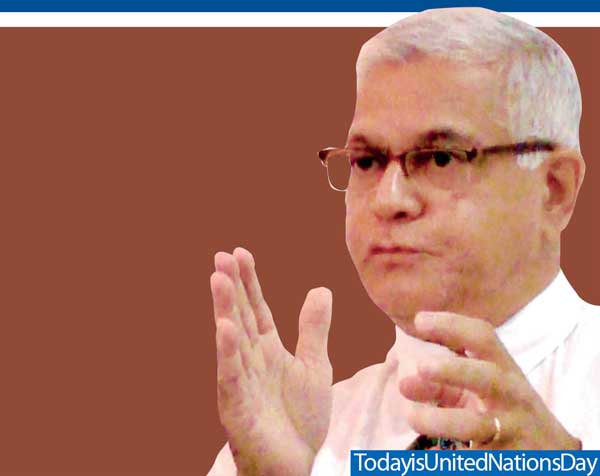Reply To:
Name - Reply Comment
Last Updated : 2024-04-20 00:00:00
.jpg) The United Nations Resident Co-ordinator in Sri Lanka Subinay Nandy spoke to the Daily Mirror on the future plans of the UN in Sri Lanka, the implications of the United Nations High Commissioner for Human Rights’ visit to Sri Lanka, and the mistrust and criticism leveled against the UN in Sri Lanka. Excerpts of the interview follow-watch the interview online.
The United Nations Resident Co-ordinator in Sri Lanka Subinay Nandy spoke to the Daily Mirror on the future plans of the UN in Sri Lanka, the implications of the United Nations High Commissioner for Human Rights’ visit to Sri Lanka, and the mistrust and criticism leveled against the UN in Sri Lanka. Excerpts of the interview follow-watch the interview online._Page-12(1).jpg) We are also taking into consideration changes that have taken place since the end of the war. We think that the Lessons Learnt and Reconciliation Commission (LLRC) report that came out at the end of 2011 is a milestone and a guideline document for the government.
We are also taking into consideration changes that have taken place since the end of the war. We think that the Lessons Learnt and Reconciliation Commission (LLRC) report that came out at the end of 2011 is a milestone and a guideline document for the government.

Add comment
Comments will be edited (grammar, spelling and slang) and authorized at the discretion of Daily Mirror online. The website also has the right not to publish selected comments.
Reply To:
Name - Reply Comment
On March 26, a couple arriving from Thailand was arrested with 88 live animal
According to villagers from Naula-Moragolla out of 105 families 80 can afford
Is the situation in Sri Lanka so grim that locals harbour hope that they coul
A recent post on social media revealed that three purple-faced langurs near t